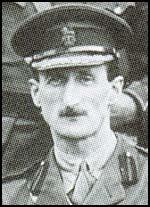Eric Holt-Wilson

Eric Edward Holt-Wilson was born in 1875. After being educated at Harrow School and the Woolwich Royal Military Academy, he was commissioned as Second Lieutenant in the Royal Engineers in 1895.
In 1899 he was posted to South Africa where he served in the Boer War. On his return to England he became an instructor in Military Engineering at the Royal Military Academy. In 1912 he went to work for Vernon Kell, the Director of the Home Section of the Secret Service Bureau with responsibility for investigating espionage, sabotage and subversion in Britain.
On the outbreak of the First World War Holt-Wilson joined forces with Vernon Kell and Basil Thomson to draft The Defence of the Realm Act (DORA). This was an attempt "to prevent persons communicating with the enemy or obtaining information for that purpose or any purpose calculated to jeopardise the success of the operations of His Majesty's Forces or to assist the enemy." This legislation gave the government executive powers to suppress published criticism, imprison without trial and to commandeer economic resources for the war effort. During the war publishing information that was calculated to be indirectly or directly of use to the enemy became an offence and accordingly punishable in a court of law. This included any description of war and any news that was likely to cause any conflict between the public and military authorities.
Holt-Wilson became second in command of MI5 in 1931. He was also a visiting lecturer at the Camberley Staff College (1921-1939); Joint Secretary, Lord Chancellor's Committee on War and Emergency Legislation, Committee of Imperial Defence (1924-1938) and Deputy Commandant, War Department Constabulary (1927-1942).
Eric Holt-Wilson died in 1950.
Primary Sources
(1) Eric Holt-Wilson, memo to Vernon Kell (1920)
Despite statements to the contrary in the press and elsewhere, Sir Basil Thomson's organization has never actually detected a case of espionage, but has merely arrested and questioned spies at the request of MI5, when the latter organization, which had detected them, considered that the time for arrest had arrived. The Army Council are in favour of entrusting the work to an experienced, tried and successful organization rather than to one which has yet to win its spurs.
Sir Basil Thomson's existing higher staff consists mainly of ex-officers of MI5 not considered sufficiently able for retention by that Department. The Army Council are not satisfied with their ability to perform the necessary duties under Sir Basil Thomson's direction, and they are satisfied that detective officers alone, without direction from above, are unfitted for the work.
